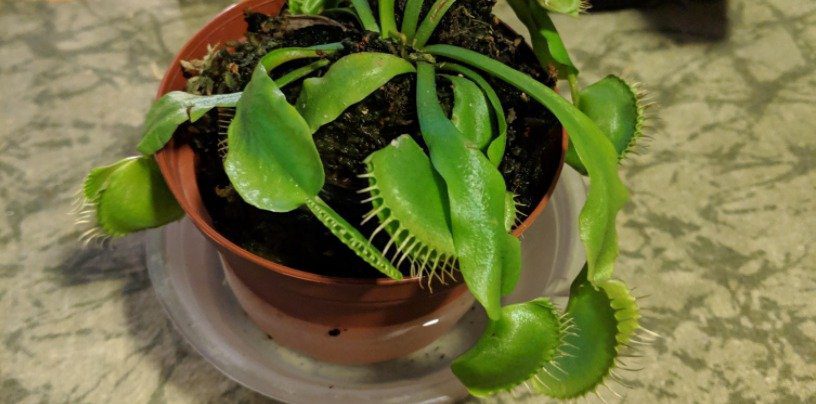What is wrong with my venus fly trap? Many people ask this question when they see their plant drooping. It can be hard to tell what might be causing it, but there are some common reasons that may explain why your fly trap is drooping. Read on for more information about the possible causes of a fly trap drooping and how you can fix the issue…
Why Is My Venus Fly Trap Drooping?
The main reason why your venus fly trap is drooping is due to it not getting enough light. You see, fly traps are adapted to grow in a specific type of environment. If the conditions are not right, your plant will let you know by drooping over and looking generally unhappy!
If you’re keeping your fly trap indoors, make sure that it has a window where it can get as much sunlight as possible. If this doesn’t seem to be the problem and your plant is still drooping, then keep reading to find out how to prevent this issue from happening again.
Remember: The Venus Fly Trap Has a Dormant Season
There’s a chance that your venus fly trap has gone into its dormant season. In fact, this may be why your fly trap is drooping! This season starts in late October and ends sometime in February. During this time, the fly trap goes into a period of hibernation where it is basically sleeping.
Has the Venus Fly Trap Been Under Stress?
Is there a chance that it has been under stress and this is why it is drooping? If so, then the best thing to do is just let it be and wait for the plant to perk back up. You can help out by placing your fly trap in an environment that will put less stress on it, such as a room with indirect sunlight or weak light.
How To Stop Venus Fly Trap Drooping?
The solution will depend on what is causing the drooping in the first place, but I’ve had good success with using LED grow lights on my carnivorous plants, especially during the cold months.
A grow light will help your fly trap get the light that it needs to stay strong and healthy. Using a full-spectrum light is the best idea as that is closest to the sun’s rays. Also, make sure to rotate plants from time to time as they can become lopsided if they receive more light on one side over another!
To keep your fly trap looking its best, it’s important to follow the main growth tips. Here is what I recommend:
Soil: Make sure to feed your fly trap every month or so! – Keep the soil moist but not wet (similar conditions as if it were growing outside) – Don’t overfeed. Only feed one trap every month or two.
Water: You should water a venus fly trap about once a week. If you are using tap water, let it sit out for at least 24 hours so that the chemicals in the water can evaporate. You can test if your plant needs more water by poking your finger into the soil.
If it is still slightly damp, then you don’t need to water yet! You can also use a moisture meter to get the most accurate results
Temperature: Fly traps light temperature that is between 75 and 80 degrees Fahrenheit. If your fly trap is drooping, then it may be because the temperature of the room that you are growing in is too low or high.
Conclusion
In conclusion, knowing how to identify the cause of a fly trap drooping is an important skill for any plant keeper. Droopy venus fly traps do not have to be a death sentence, and there are many things that you can try in order to get them back on track! Hopefully, this blog post has been helpful.
My top tip is to use a grow light to help the fly trap get enough sunlight. Doing this will help your fly trap stay strong and healthy!
By following these steps, I have been able to keep my venus fly traps looking great for over two years now. Thanks so much for reading – please leave any comments below if you have them!
Tim is an avid gardener from the UK. He was the founder of PlantCarer.com from 2021 to Sep 2023. He sold PlantCarer.com to Aaron. He has since started his own business called Seed To Supper, which provides new gardeners all the materials you need in a box (pots, seeds, compost and instructions) to grow your own delicious and nutritious vegetables and herbs from start to finish – no garden required.


